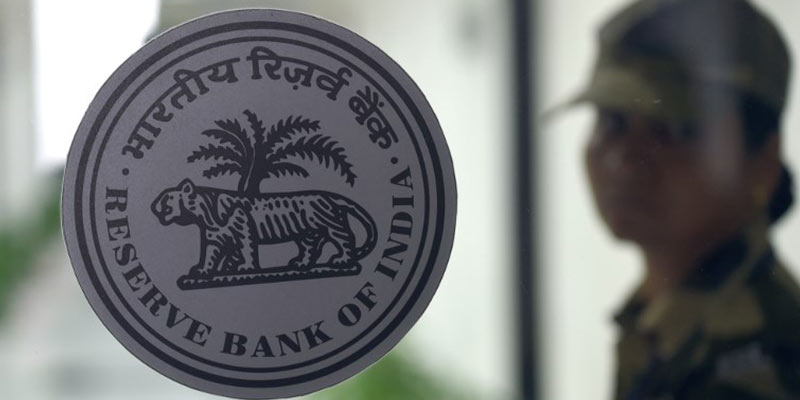- India
- Jul 19
Explainer / RBI’s Integrated Ombudsman Scheme
As many as 7,813 complaints have been received during the last financial year against banks and Non-Banking Financial Companies (NBFCs) pertaining to digital lending apps and against recovery agents/harassment by recovery agents under the Integrated Ombudsman Scheme of RBI.
The banking ombudsman is a senior official appointed by the RBI to redress customer complaints against deficiency in certain banking services.
Integrated Ombudsman Scheme
The Reserve Bank-Integrated Ombudsman Scheme, 2021 was launched in November last year.
It integrated three Ombudsman schemes of RBI:
i) The Banking Ombudsman Scheme, 2006
ii) The Ombudsman Scheme for Non-Banking Financial Companies, 2018
iii) The Ombudsman Scheme for Digital Transactions, 2019.
• The scheme adopts ‘One Nation One Ombudsman’ approach by making the RBI ombudsman mechanism jurisdiction neutral.
• It provides cost-free redress of customer complaints involving deficiency in services rendered by entities regulated by RBI, if not resolved to the satisfaction of the customers or not replied within a period of 30 days by the regulated entity.
• In addition to integrating the three existing schemes, the scheme also includes under its ambit Non-Scheduled Primary Co-operative Banks with a deposit size of Rs 50 crore and above.
Some of the salient features of the scheme are:
1) It will no longer be necessary for a complainant to identify under which scheme he/she should file complaint with the ombudsman.
2) The scheme defines ‘deficiency in service’ as the ground for filing a complaint, with a specified list of exclusions. Therefore, the complaints would no longer be rejected simply on account of “not covered under the grounds listed in the scheme”.
3) It has done away with the jurisdiction of each ombudsman office.
4) A Centralised Receipt and Processing Centre has been set up at RBI, Chandigarh for receipt and initial processing of physical and email complaints in any language.
5) The regulated entity will not have the right to appeal in cases where an award is issued by the ombudsman against it for not furnishing satisfactory and timely information/documents.
6) The executive director-in charge of the Consumer Education and Protection Department of RBI would be the Appellate Authority under the scheme.
Dealing with complaints against digital lending apps
• RBI introduced Integrated Ombudsman Scheme wherein complaints against banks and NBFCs regarding digital lending can be lodged.
• Under the scheme, the ombudsman shall have power to pass an award for any consequential loss suffered by complainant up to Rs 20 lakh, in addition to, up to Rs 1 lakh for the loss of the complainant’s time, expenses incurred and for harassment/mental anguish suffered by the complainant.
• Further, the Department of Supervision, RBI has been designated as the nodal department for dealing with complaints against unauthorised digital lending platforms/apps and a mechanism to handle specific references on unauthorised digital lending platforms/apps has been laid down.
• Also, RBI has established a portal named as ‘Sachet’ under the State Level Coordination Committee mechanism for registering complaints by public. On the ‘Sachet’ portal, complaints against lending apps promoted by entities not regulated by RBI are sent to concerned registrar of companies for ministry of corporate affairs registered entities, and to Economic Offences Wing of complainant’s state for unincorporated bodies and individuals.
• RBI has constituted a working group on digital lending including lending through online platforms and mobile apps, to study all aspects of digital lending activities in the regulated financial sector as well as by unregulated players.
• The thrust of the report has been on enhancing customer protection and making the digital lending ecosystem safe and sound while encouraging innovation.
• As per findings of this report, majority of the complaints pertain to lending apps promoted by entities not regulated by the RBI such as companies other than NBFCs, unincorporated bodies and individuals.
• Major concerns raised in such complaints were issues of exorbitant interest and charges levied by digital lending apps, and harassment of customers for loan repayments.
• RBI had cautioned the general public not to fall prey to unscrupulous activities of unauthorised digital lending platforms/ apps and verify the antecedents of the company/firm offering such loans.
• RBI has also issued advisories to state governments to keep a check on unauthorised digital lending platforms/apps through their respective law enforcement agencies.
• As per information provided by the ministry of electronics and information technology (MeitY), to have an open, safe & trusted and accountable Internet, the government has notified the Information Technology (Intermediary Guidelines and Digital Media Ethics Code) Rules, 2021 under the Information Technology (IT) Act, 2000. The said Rules provide for removal of such apps, if an app is considered unlawful under the extant law, through Play Store/ App Store (intermediaries) as and when requested by an appropriate government or its authorised agency.
Manorama Yearbook app is now available on Google Play Store and iOS App Store

